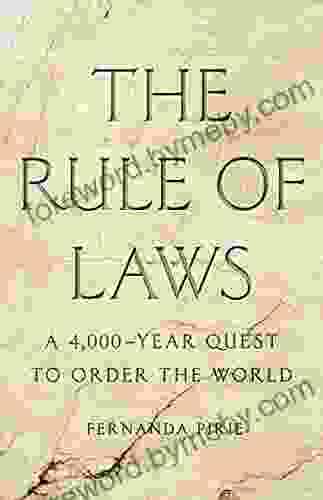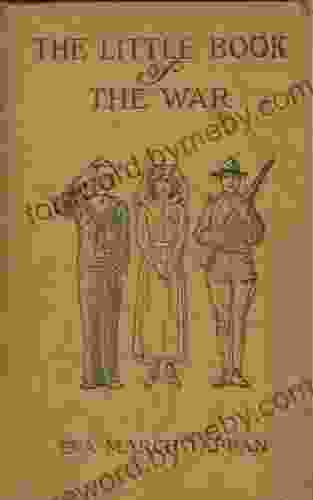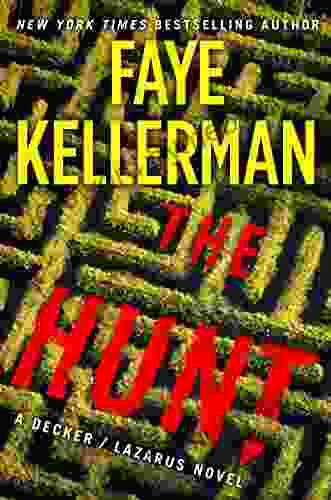1000 Year Quest to Order the World: A Comprehensive History of Science

Science is a human endeavor that has been going on for thousands of years. It is a process of inquiry that seeks to understand the natural world and our place in it. Science has led to many of the advances that we enjoy today, from medicine to transportation to communication. It has also shaped our understanding of the universe and our place within it.
4.5 out of 5
| Language | : | English |
| File size | : | 55489 KB |
| Text-to-Speech | : | Enabled |
| Screen Reader | : | Supported |
| Enhanced typesetting | : | Enabled |
| Word Wise | : | Enabled |
| Print length | : | 625 pages |
This book is a comprehensive history of science from ancient times to the present day. It tells the story of the men and women who have dedicated their lives to understanding the natural world, and the discoveries that they have made. It is a story of progress and setbacks, of great triumphs and bitter defeats. But it is also a story of hope and inspiration. It is a story of the human spirit's unyielding quest to understand the world around us.
Ancient Science
The earliest known scientific inquiries can be traced back to ancient Egypt and Mesopotamia. These civilizations developed systems of mathematics, astronomy, and medicine that were surprisingly sophisticated for their time. The Egyptians, for example, developed a system of hieroglyphics that allowed them to record their observations of the natural world. They also developed a calendar that was based on the annual flooding of the Nile River. The Babylonians, meanwhile, developed a system of cuneiform writing that allowed them to record their observations of the stars and planets. They also developed a system of mathematics that was based on the number 60.
The Greeks were the first people to develop a systematic approach to science. They believed that the natural world was governed by laws that could be understood through observation and reason. Greek scientists made significant advances in mathematics, physics, and astronomy. They also developed a system of medicine that was based on the idea that the body was made up of four humors: blood, phlegm, yellow bile, and black bile. The balance of these humors was thought to determine a person's health.
The Romans inherited the scientific knowledge of the Greeks and made some important contributions of their own. They developed a system of roads and aqueducts that allowed them to control a vast empire. They also developed a system of law that was based on the idea of natural justice.
Medieval Science
The fall of the Roman Empire in the 5th century AD marked the beginning of the Middle Ages. This was a period of great intellectual decline in Europe. However, science continued to flourish in the Islamic world. Muslim scholars made significant advances in mathematics, astronomy, and medicine. They also developed a system of alchemy that was based on the idea that all matter was composed of four elements: earth, air, fire, and water.
In the 12th century, Europe began to experience a revival of learning. This revival was due in part to the rediscovery of the works of the ancient Greek scientists. European scholars began to translate these works into Latin and to study them in earnest. This led to a renewed interest in science and to a number of important advances. In the 13th century, for example, the English scientist Roger Bacon developed a system of experimental science that was based on the idea that knowledge should be based on observation and experimentation. In the 14th century, the French scientist Jean Buridan developed a theory of motion that was based on the idea that all objects have inertia. And in the 15th century, the Polish scientist Nicolaus Copernicus developed a theory of the solar system that placed the sun at the center.
The Renaissance and the Scientific Revolution
The Renaissance was a period of great cultural and intellectual change in Europe. This period saw the rise of humanism, a new emphasis on the individual and on human reason. Humanists believed that the natural world could be understood through observation and reason, and they rejected the authority of the Church. This led to a new interest in science and to a number of important advances. In the 16th century, for example, the Italian scientist Galileo Galilei developed a telescope that allowed him to observe the moons of Jupiter and the phases of Venus. He also developed a theory of motion that was based on the idea that all objects fall at the same rate. In the 17th century, the English scientist Isaac Newton developed a theory of gravity that explained the motion of the planets and the tides. He also developed a system of calculus that was based on the idea of limits.
The Scientific Revolution was a period of great intellectual ferment in Europe. This period saw the rise of modern science, a new emphasis on experimentation and observation. Scientists began to use mathematics and logic to develop new theories about the natural world. They also began to develop new technologies, such as the microscope and the telescope, that allowed them to observe the natural world in unprecedented detail.
Modern Science
Modern science is characterized by its emphasis on experimentation and observation. Scientists develop hypotheses about the natural world and then test these hypotheses through experimentation. If the hypotheses are supported by the evidence, they are accepted as scientific laws. Modern science has led to a number of important advances, such as the development of vaccines, antibiotics, and computers. It has also led to a better understanding of the universe and our place within it.
The Future of Science
The future of science is bright. Scientists are making new discoveries every
4.5 out of 5
| Language | : | English |
| File size | : | 55489 KB |
| Text-to-Speech | : | Enabled |
| Screen Reader | : | Supported |
| Enhanced typesetting | : | Enabled |
| Word Wise | : | Enabled |
| Print length | : | 625 pages |
Do you want to contribute by writing guest posts on this blog?
Please contact us and send us a resume of previous articles that you have written.
 Book
Book Novel
Novel Page
Page Chapter
Chapter Text
Text Story
Story Genre
Genre Reader
Reader Library
Library Paperback
Paperback E-book
E-book Magazine
Magazine Newspaper
Newspaper Paragraph
Paragraph Sentence
Sentence Bookmark
Bookmark Shelf
Shelf Glossary
Glossary Bibliography
Bibliography Foreword
Foreword Preface
Preface Synopsis
Synopsis Annotation
Annotation Footnote
Footnote Manuscript
Manuscript Scroll
Scroll Codex
Codex Tome
Tome Bestseller
Bestseller Classics
Classics Library card
Library card Narrative
Narrative Biography
Biography Autobiography
Autobiography Memoir
Memoir Reference
Reference Encyclopedia
Encyclopedia Joseph Vogel
Joseph Vogel Ethan M Rasiel
Ethan M Rasiel Rita Kogler Carver
Rita Kogler Carver Eva Charles
Eva Charles Frankie Bell
Frankie Bell Samantha Gordon
Samantha Gordon Jason A Scharfman
Jason A Scharfman Peter Hopkirk
Peter Hopkirk Erica M Nielsen
Erica M Nielsen Eva Tulene Watt
Eva Tulene Watt Francisco Martin Rayo
Francisco Martin Rayo Frederica Relly
Frederica Relly Eugene Gold
Eugene Gold George H Odell
George H Odell Felicita Sala
Felicita Sala Fern Michaels
Fern Michaels Franka Hughes
Franka Hughes Forrest Galante
Forrest Galante Farah Ali
Farah Ali Muon Thi Van
Muon Thi Van
Light bulbAdvertise smarter! Our strategic ad space ensures maximum exposure. Reserve your spot today!
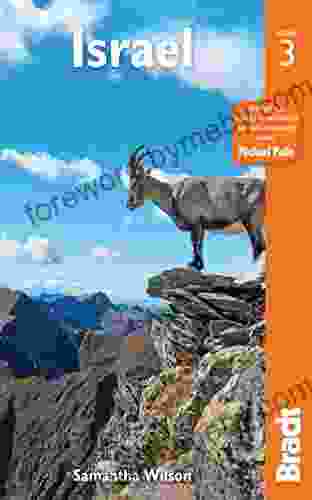
 Fabian MitchellIsrael Bradt Travel Guides: The Essential Guide to Israel, the West Bank and...
Fabian MitchellIsrael Bradt Travel Guides: The Essential Guide to Israel, the West Bank and... Derek CookFollow ·16.4k
Derek CookFollow ·16.4k James JoyceFollow ·16.1k
James JoyceFollow ·16.1k Virginia WoolfFollow ·7.1k
Virginia WoolfFollow ·7.1k Dallas TurnerFollow ·7.8k
Dallas TurnerFollow ·7.8k Hudson HayesFollow ·12.2k
Hudson HayesFollow ·12.2k Caleb LongFollow ·19.6k
Caleb LongFollow ·19.6k Roald DahlFollow ·9.6k
Roald DahlFollow ·9.6k Rick NelsonFollow ·5.2k
Rick NelsonFollow ·5.2k

 Al Foster
Al FosterDive into the Enchanting World of Manatees: An...
Unveiling the Secrets of the Gentle...

 Isaac Mitchell
Isaac MitchellThe Farm Reggie and Friends: US Version - A Captivating...
A Heartwarming Tale that Embraces...

 Esteban Cox
Esteban CoxThe Interior Design Handbook: Your Comprehensive Guide to...
Are you ready to...
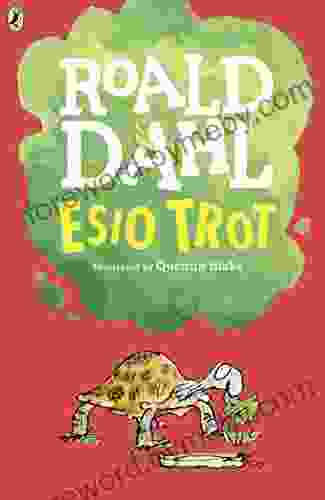
 William Wordsworth
William WordsworthFall Head Over Heels for "Esio Trot" by Roald Dahl: A...
Prepare to be charmed, amused, and utterly...

 Caleb Carter
Caleb CarterBlack Clover Vol Light Frida Ramstedt: A Thrilling...
Prepare to be spellbound by...

 Richard Simmons
Richard SimmonsFantastic Mr. Fox: A Literary Adventure That Captivates...
In the realm...
4.5 out of 5
| Language | : | English |
| File size | : | 55489 KB |
| Text-to-Speech | : | Enabled |
| Screen Reader | : | Supported |
| Enhanced typesetting | : | Enabled |
| Word Wise | : | Enabled |
| Print length | : | 625 pages |


